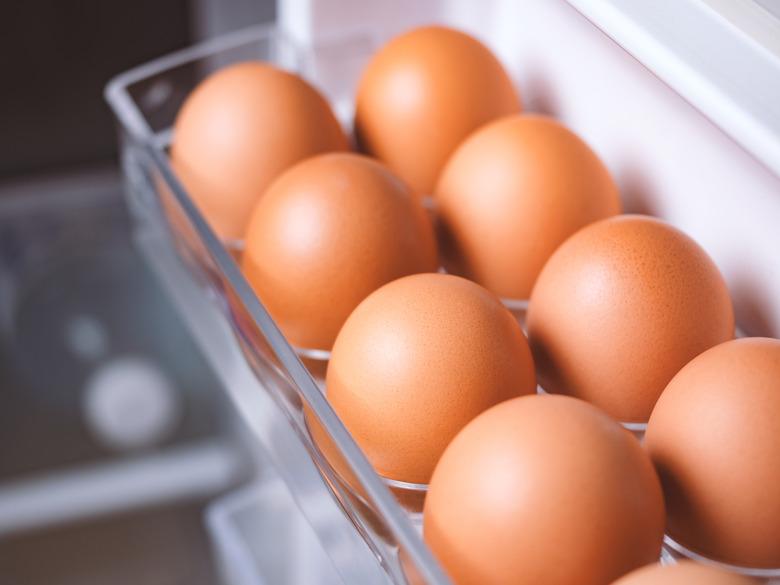Why You Shouldn't Use The Egg Containers That Come With Your Fridge
If you're on a mission to organize your refrigerator, you're not alone. Between the popularity of #CleanTok and kitchen restock videos, many of us have been inspired to tidy up the fridge. Often, this includes repackaging foods in simpler, aesthetically pleasing containers, which might even come with your refrigerator.
However, if your fridge model has an egg tray in its door, you might want to pass on using it to store your eggs. The reason? According to experts, the practice is bad news for not only safety but quality too.
The Problems With Storing Eggs in Your Refrigerator’s Egg Container
The Problems With Storing Eggs in Your Refrigerator's Egg Container
"It's best to avoid storing eggs in your refrigerator's egg container because of its location," Kimberly Baker, Ph.D., RD, LD, director of the Clemson Extension Food Systems and Safety Program Team, tells Hunker. "Eggs should be stored in the coldest part of the refrigerator — 40 degrees Fahrenheit or less — which is away from the door," she explains.
The door also frequently opens, so the temperature can rise throughout the day. This can increase the temperature of the eggs, potentially causing bacteria (we're looking at you, salmonella) in said eggs to grow and multiply.
In addition, most people forget to regularly wash their egg trays, notes Herve Guillard, chef instructor and director of education at the Institute of Culinary Education. This can pose a safety issue since eggs may crack and spill, leaving harmful bacteria in the tray.
Using the egg container in your refrigerator can also mess with quality. "Eggs are capable of absorbing odor through the pores in the shells," says Baker, so much so that they should be stored away from strong-smelling foods, like fish, apples, and onions. However, the refrigerator's egg compartment has no lid, so it doesn't protect against odors. This exposure also reduces moisture in egg whites, which makes them thinner, says Guillard. Egg cartons can minimize both of these issues, as they have lids that cover the eggs.
Plus, the original egg carton contains the expiration date, use-by date, or sell-by date of the eggs, notes Baker. This is helpful for keeping track of your eggs' freshness.
Other Safe Ways to Store Eggs
Other Safe Ways to Store Eggs
If you don't have the original carton, it's still recommended to avoid the refrigerator's egg tray. Instead, store the eggs in a container with a lid to prevent odor absorption, says Baker. And if you do have the original carton and know the expiration date, label the container with the eggs' expiration date so you can be sure to use them before newer eggs, she adds.
While any kind of container will do, Guillard prefers a dishwasher-safe plastic tray. "Eggs might get cracked in a metal or glass bowl, so plastic avoids [this]," he tells Hunker. Also, be sure to wash the container between uses. This will ensure that no bacteria make their way through the porous shell, says Guillard.
